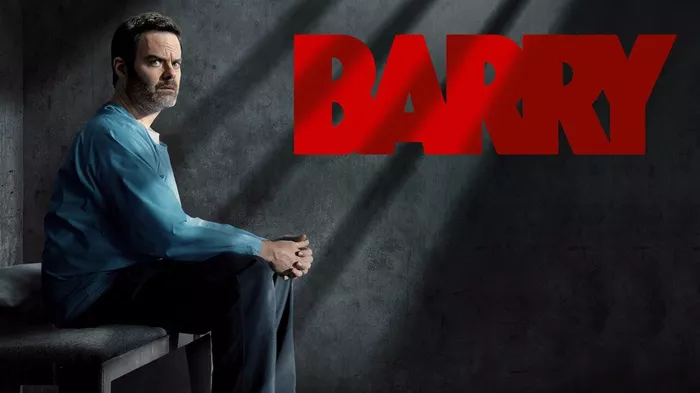HBO’s acclaimed series “Barry” is an enthralling blend of dark comedy and drama that captivates audiences with its unique premise and intricate storytelling. Created by Alec Berg and Bill Hader, the show made its debut in 2018 and has since garnered widespread acclaim for its compelling narrative and brilliant performances. Set in the realm of hitmen and struggling actors, “Barry” navigates the complexities of its titular character’s life, offering a gripping exploration of morality, identity, and the pursuit of redemption.
Plot Overview
The series revolves around Barry Berkman, played by Bill Hader, a disillusioned hitman from the Midwest who travels to Los Angeles for a job and inadvertently finds himself immersed in the city’s vibrant acting scene. While tracking a target, Barry stumbles upon an acting class led by the charismatic and demanding Gene Cousineau, portrayed by Henry Winkler. Intrigued by the world of acting and seeking a sense of purpose beyond his grim profession, Barry decides to pursue an acting career, much to the chagrin of his boss, Fuches (Stephen Root), who wants Barry to remain committed to his lethal assignments.
Character Dynamics
The central conflict arises from Barry’s attempt to balance his dual life as a hitman and aspiring actor. As he becomes increasingly involved in the theater community, forging relationships with fellow actors, including Sally Reed (Sarah Goldberg), and navigating the challenges of the entertainment industry, Barry grapples with the moral implications of his violent past. His internal struggle between the life he desires and the one he feels trapped in forms the crux of the series, driving the character development and narrative tension.
Themes Explored
“Barry” delves into various themes that resonate deeply with audiences. One of the prominent themes is the exploration of identity and the complexities of self-discovery. Barry’s desire to break away from his criminal past and redefine himself as an actor encapsulates the constant struggle to reconcile conflicting aspects of one’s identity. Additionally, the series examines the cyclical nature of violence and the consequences of one’s actions, shedding light on the moral ambiguity that permeates Barry’s journey.
Furthermore, the show touches upon the notion of redemption and the possibility of atoning for past sins. Barry grapples with the idea of whether he can truly leave behind his violent past and find redemption through his pursuit of acting. The exploration of morality and the blurred lines between right and wrong contribute to the show’s depth, inviting viewers to contemplate the nature of morality and the potential for personal transformation.
Narrative Depth and Dark Humor
“Barry” is renowned for its intricate storytelling, seamlessly blending moments of intense drama with dark humor. The series adeptly navigates tonal shifts, juxtaposing scenes of tension and violence with instances of witty humor, creating a compelling narrative rhythm. This unique blend of genres allows the show to explore complex themes while infusing moments of levity, ensuring that viewers remain engaged and emotionally invested in the characters’ journeys.
The dark humor inherent in “Barry” serves as a coping mechanism for the characters, providing a stark contrast to the grim realities they face. It allows the audience to confront the darker aspects of the story while also highlighting the absurdity of certain situations. This tonal balance is a testament to the show’s writing and performances, creating a viewing experience that is both thought-provoking and entertaining.
Critical Acclaim and Impact
Since its premiere, “Barry” has received widespread critical acclaim for its writing, direction, and performances. The series has been lauded for its gripping narrative, multidimensional characters, and the seamless portrayal of the complexities of human nature. Bill Hader’s portrayal of Barry Berkman has been particularly praised, showcasing his versatility as both a comedic talent and a dramatic actor.
Moreover, the show’s exploration of morally ambiguous themes has resonated with audiences, sparking discussions about the nature of morality, the pursuit of redemption, and the intricacies of personal transformation. “Barry” has also been commended for its nuanced depiction of the entertainment industry and its examination of the lengths individuals are willing to go to pursue their dreams.
Conclusion
In conclusion, the HBO series “Barry” intricately weaves together elements of dark comedy and drama to deliver a compelling narrative centered around a hitman’s quest for redemption through the world of acting. With its exploration of identity, morality, and the pursuit of redemption, the show offers a thought-provoking examination of complex themes while maintaining a delicate balance between intense drama and dark humor. Through its compelling storytelling and stellar performances, “Barry” continues to captivate audiences and stands as a testament to the power of nuanced storytelling in television.
As viewers delve into the intricacies of Barry Berkman’s journey, they are invited to ponder the fundamental questions the series poses: What defines a person’s identity? Can one escape their past? And ultimately, is redemption attainable even in the face of a tumultuous and morally challenging existence? “Barry” invites its audience on a gripping and introspective journey, leaving a lasting impact with its profound exploration of the human condition.
























